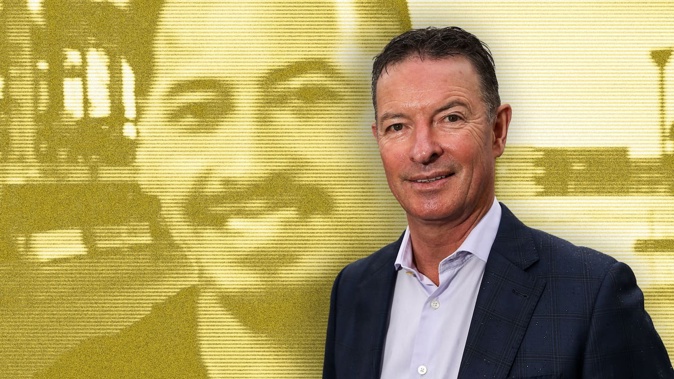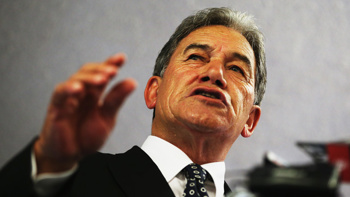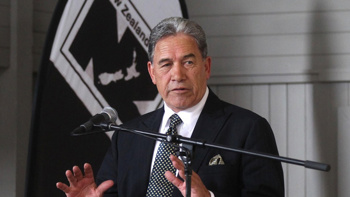
Former Port of Auckland boss Tony Gibson failed to use his “influence, power and resource” to ensure frontline workers were kept safe before a stevedore was fatally crushed by a container, an unprecedented court case has heard.
The former Port of Auckland Limited (POAL) chief executive has gone on trial in a first- of-its-kind prosecution in New Zealand over the 2020 workplace death of 31-year-old father-of-seven Pala’amo Kalati.
Gibson, 69, faces two charges laid by Maritime NZ. It is the first time a New Zealand chief executive has been charged over a workplace fatality.
The prosecution has been brought under tough new health and safety laws introduced following the Pike River mine disaster aimed at holding senior company officers to account for exposing workers to risk of serious injury or death.
If convicted, Gibson - who resigned in 2021 following a string of deaths and serious incidents at the port - could be fined up to $400,000.
The judge-alone trial is underway in the Auckland District Court before Judge Steve Bonnar. It is expected to last several weeks.
Maritime NZ prosecutors claim there were “systemic deficiencies” in terms of health and safety procedures at the port under Gibson’s watch.
They argue Gibson failed to use his “influence, power and resource” around the boardroom and executive to properly monitor those failures and ensure necessary steps were taken to keep workers safe.
It is also claimed that Gibson should have been “on notice” of the deficient safety culture following four previous health and safety prosecutions during his decade-long tenure as chief executive.
It’s alleged those convictions should have made Gibson aware of significant inadequacies in the port’s health and safety systems, and the critical need for immediate work to revise and rectify those risks.
- 'Absolutely devastated': Father-of-seven named as victim in Auckland port tragedy
- Ports of Auckland death: Union wants national inquiry, Mayor says 'it is a tragedy'
“An officer who can influence the organisation’s health and safety performance must do all that they are reasonably able to do: the buck stops with them,” prosecutors allege.

Former Port of Auckland chief executive Tony Gibson was charged under the Health and Safety at Work Act over the death. The charges are unprecedented for an executive of a major NZ company. Photo / Doug Sherring
However, Gibson’s defence lawyer John Billington, KC, says his client cannot be held “criminally negligent” for the tragedy of Kalati’s death.
While Gibson had overall responsibility for port operations, he was not personally liable for the failures of individual systems and staff over which he had no direct control, Billington argued.
“He was but one of 650 employees at the time, albeit the most senior. The conduct of POAL is not attributable to Mr Gibson.”
The accident which claimed the life of Pala’amo Kalati
Kalati was employed as a “lasher”, responsible for securing containers on ships ahead of transportation, and unfastening them before they were unloaded from berthed vessels by cranes.
At about 2am on August 30, 2020, stevedores were discharging cargo from the container vessel MV Constantinos P at the Fergusson Container Terminal.
A crane was lifting two containers from the deck when a third container, still partially fastened, accidentally lifted before breaking free and crushing Kalati as he worked below.

Pala'amo Kalati (right) with wife Dro and six of their seven children: Jairus, Mischa, Azra, Braxton, Sarai and Iman. Photo / Supplied
Maritime NZ launched an investigation into the death, eventually charging Gibson and also laying two charges against POAL under the Health and Safety at Work Act.
The company pleaded guilty and was fined $500,000 in December last year. Gibson pleaded not guilty in 2022 and his trial began this month.
‘Discrete personal and positive duty of care’
Opening submissions by Maritime NZ prosecutors, obtained by the Herald, allege Gibson had a “discrete personal and positive duty of care” in relation to port health and safety procedures given his role as chief executive.
But it’s alleged Gibson failed to exercise reasonable “care, diligence, and skill” or take all practicable steps to minimise or eliminate critical risks.
These included:
* Ensuring a safe distance rule for workers operating near cranes was clearly documented and effectively implemented;
* Ensuring there were safe processes for co-ordination between lashers and crane operators working on ships;
* Assessing the risk of merging frontline roles during the Covid-19 pandemic response which the prosecution claims increased the “readily foreseeable” risk to lashers;
* Verifying health and safety processes at the port to ensure they were adequate and effective.
It’s alleged these failures ultimately “crystallised in Mr Kalati’s demise”.
The prosecutors acknowledged the case was the first of its kind in which a large corporate chief executive had faced health and safety charges for “not exercising their influence and control”.

Pala'amo Kalati was crushed when a container was dropped during a lifting operation in August 2020. Photo / NZME
“But the fact the prosecution is in this sense ‘unprecedented’ does not mean that it is unprincipled,” the submission says.
In enacting the Health and Safety at Work Act in 2015, Parliament’s “express intention” was to promote accountability of officers in senior leadership positions – “especially those at a distance from day-to-day operational and safety decision-making because of their seniority”.
The prosecutors drew on Australian research which found that corporate officers responsible for worker safety should be exposed to a “meaningful personal risk of regulatory action”.
Personal liability, backed by credible enforcement, was “the single most important motivator of CEOs”.
‘POAL is not Mr Gibson’
Billington’s submission acknowledged Kalati’s death, stressing that nothing said in Gibson’s defence should be interpreted as minimising or undermining that tragedy.
He said it was appropriate that POAL pleaded guilty to Maritime NZ charges over the fatality.
The “cumulative actions and omissions of various workers”, including the person who authorised Kalati to work near the operating crane, were attributed to POAL in terms of liability, Billington said.
“The fundamental feature of this case is that POAL is not Mr Gibson.”
Billington stressed that while Gibson held a senior leadership position at the port, this client had been just one link in a chain of command overseeing hundreds of workers.
John Billington, KC, is representing former Port of Auckland chief executive Tony Gibson in a first of its kind health and safety prosecution.
He referenced a similar Australian case from March this year which found that a managing director “cannot know everything that is going on at any given moment. To run a corporation there must be a level of delegation.”
Under Gibson’s watch, emphasis was placed on developing and improving health and safety systems, Billington said.
Gibson was instrumental in developing complex operating systems during the Covid-19 response to safeguard workers while allowing international freight operations to continue.
“We stress the importance of this because it demonstrates how seriously POAL took its obligation to the country and its staff, under Mr Gibson’s leadership,” the submission said.

Stevedore Pala'amo (Amo) Kalati, 31, was crushed when a container was dropped during a lifting operation at 2am on August 30, 2020. Photo / Michael Craig
At the time of the accident, there was already a “fundamental and documented obligation” for workers to maintain a safe exclusion zone of three container widths when working around overhead cranes.
Ultimately the case turned on what the law required of a reasonable officer acting in the same circumstances as Gibson, Billington said.
“This is not a case of a CEO sitting in an ivory-tower, disengaged from health and safety or his workforce.”
The trial continues.
Lane Nichols is a senior journalist and deputy head of news based in Auckland. Before joining the Herald in 2012, he spent a decade at Wellington’s Dominion Post and Nelson Mail.
Take your Radio, Podcasts and Music with you









